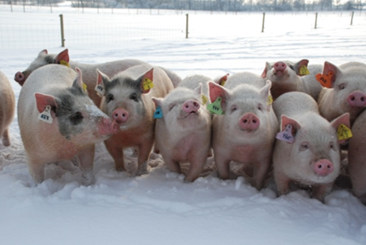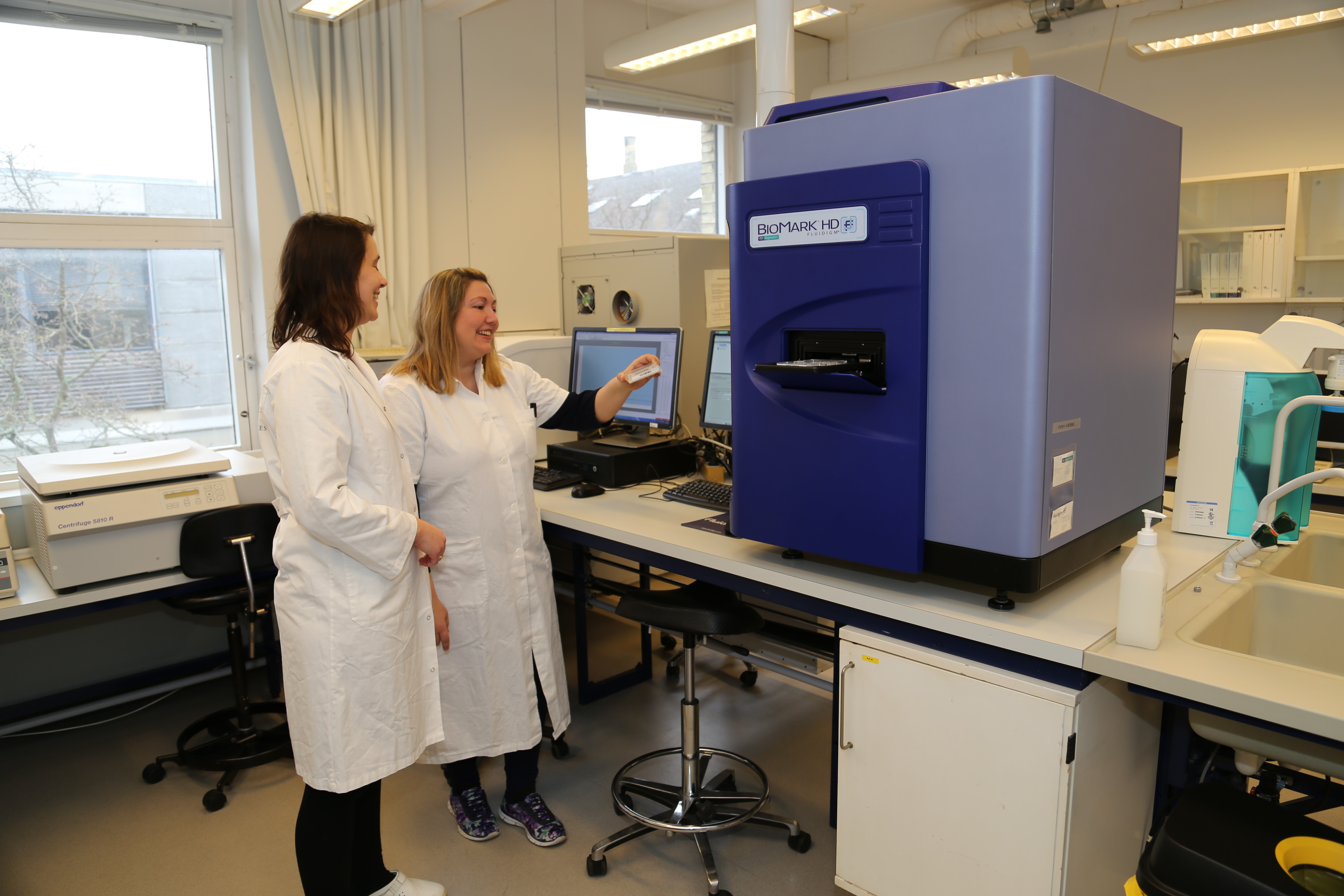Animal Genetics and Breeding
The research group conducts research in the areas animal genetics, genomics, quantitative genetics, and animal breeding using molecular genetics, modeling and computational tools. We identify and validate genomic and epigenetic components that play key roles for disease and other performance traits.
Furthermore, we develop and apply quantitative and animal breeding methodologies to enhance sustainable animal production and health. Applying mathematical and statistical tools to high-throughput data, we study functional effects of genomic variation to improve breeding. We exploit comparative genomics and develop animal models for human diseases by exploiting relevant natural variation inherent to animal populations.
Centres and consortia, in which members of the research group participate:
- Center for non-coding RNA in Technology and Health
- UNIK- Food Fitness and Pharma
- International Swine Genome Sequencing Consortium
- Elixir-Denmark
- BrainStem - Stem Cell Center of Excellence in Neurology
- Pig-Paradigm
Animal Genetics and Breeding
 We generate information that contributes to novel biological insight into mammalian genomes and function. We use this insight to improve animal and human health, develop diagnostic tests and to support sustainable animal breeding and production.
We generate information that contributes to novel biological insight into mammalian genomes and function. We use this insight to improve animal and human health, develop diagnostic tests and to support sustainable animal breeding and production.
Key focus
Our key focus is to establish links between phenotypes and genotypes. Our main projects at present concern:
- identification of molecular components involved in the development of obesity and obesity related metabolic traits using the pig as a model;
- elucidation of the impact of the metagenome, the genome, and the transcriptome on feed efficiency in pigs;
- identification of biomarkers in faeces, plasma, urine and CSF as diagnostic tools for cancer, urinary diseases, and encephalitis in dogs and/or cats;
- identification of genes underlying inherited diseases in dogs (MMVD, disc herniation, deafness, pancreas insufficiency etc.).
“Although the annotation of the domestic animal genome assemblies still need improvement our research benefit greatly from these assemblies. They allow us to use state of the art molecular methods and bioinformatics to connect phenotypes and genotypes” says group leader Merete Fredholm.
Main findings
Our findings in the study ’Haplotypes on pig chromosome 3 distinguish metabolically healthy from unhealthy obese individuals’ (https://doi.org/10.1371/journal.pone.0178828) show that haplotypes segregating from Göttingen Minipigs can uphold a healthy lipid profile despite development of obesity indicating that this pig breed has a phenotype comparable to the metabolically healthy obese (MHO) phenotype in humans. The study contribute to a better understanding of the factors that protect obese individuals from metabolic disturbances.
The results reported in the study ‘A targeted genotyping approach enhances identification of variants in taste receptors and appetite/reward genes of potential functional importance for obesity related porcine traits’ (https://www.ncbi.nlm.nih.gov/pubmed/29441627) demonstrate that the combination of identification of potentially functional variants by next generation sequencing followed by targeted genotyping and association studies is a powerful and cost-effective approach for increasing the power of genetic association studies. The study discloses genetic variants that have been unknowingly targeted by selection in traditional breeding programs. The knowledge obtained may be exploited in precision animal breeding in the future.
The results obtained in the study: ‘Identification of the mutation causing Progressive Retinal Atrophy in Old Danish Pointing Dog’ (https://www.ncbi.nlm.nih.gov/pubmed/29624701), are of great importance for the health in Old Danish Pointing Dogs. It allows strategic selection in the breed aimed at eradicating blindness.

Contact

Professor Merete Fredholm
Grønnegårdsvej 3, 2.
DK-1870 Frederiksberg
Phone: +45 353 33074
Research Funding



Employees
| Name | Title | Phone | |
|---|---|---|---|
| Camilla Vibeke Sichlau Bruun | Associate Professor | +4535333067 | |
| Claus Bøttcher Jørgensen | Associate Professor | +4535333064 | |
| Emil Ibragimov | Postdoc | +4535332440 | |
| Jiahong Sun | PhD Student | ||
| Maria Luigi | Postdoc | +4535323354 | |
| Merete Fredholm | Professor | +4535333074 | |
| Minna Jakobsen | Laboratory Technician | +4528756961 | |
| Peter Karlskov-Mortensen | Associate Professor | +4535333430 | |
| Susanna Cirera | Associate Professor | +4535333050 | |
| Tina Bahrt Neergaard Mahler | Laboratory Technician. | +4528756961 |
Eksternal group members
Simon K. Bredum, industriel PhD
